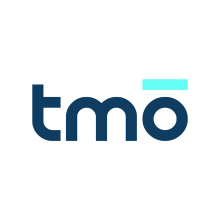
There are 3 Companies in China
that provide Progressive Web Apps Services!
China’s tech sector has grown significantly in the past two decades and is making a challenge for the US to keep its long-standing position of the world leader. Companies like Huawei, WeChat, Baidu, Tencent, Qualcomm among others consolidate the country’s efforts in becoming the next-generation leader in tech worldwide.
Discover Top IT Companies in China specialized in Progressive Web Apps and other related services. Find the best IT service providers for your projects.
A Progressive Web App (PWA) is an application made using the same technologies used for web platform development. It brings to users the experience of a traditional app while being accessible through a browser. Also, it can be used on different systems, like desktop and mobile services. The technologies used to develop these apps are JavaScript, HTML, and CSS. It can be used by anyone, anywhere, with only one codebase because it is a web app. Browsers like Microsoft Edge, Google Chrome, and Apple Safari support PWA characteristics. The goal of a Progressive Web App is to ease the process of developing cross-platform apps compared to native apps.
Handpicked companies • No obligation to hire • 100% risk-free
Explore Top Progressive Web Apps Companies in China
Techgropse is a leading Mobile App and Web Development Company, dedicated to turning innovative ideas into remarkable digital solutions. 500+ Clients
TMO helps brands launch, localize, and grow their digital presence globally and across Asia through scalable digital products and eCommerce channels.
Founded in 2022 and headquartered in Foshan, Guangdong, China, Wisray Studio is a software development company serving the world.
Filter Progressive Web Apps Companies in China by Cities
Find the right tech company near you or from a specific city. Some of the best companies might be located in smaller cities.
Find more Progressive Web Apps companies around the world
TechBehemoths is the world's most advanced and user-friendly platform to match IT Companies with real clients without hustle.
The Chinese Tech Industry: Companies and IT Industry Overview
China’s tech sector has grown significantly in the past two decades and is posing a challenge for the US to keep its long-standing position as the world leader. Companies like Huawei, WeChat, Baidu, Tencent, Qualcomm, among others, consolidate the country’s efforts in becoming the next-generation leader in tech worldwide. Lately, China and the US are battling for the 5G technology leadership, and the competition leads to an economic war that involves sanctions and restrictions for companies on both sides.
Mainly, there are three pillars of China’s tech sector growth: venture capital, innovation, and a distinct entrepreneurial culture. All these, with governmental support, managed to transform China from a mass manufacturer into a tech giant.
At the same time, Alessandro Cormio from Naturality states that China has a rapidly growing market for IT products and services, with a large and increasingly tech-savvy population. The Chinese government has invested heavily in developing its own tech industry, which has led to a vibrant and innovative tech ecosystem. However, there are also significant challenges. Chinese consumers have started to shift their preferences towards domestic brands, making it more difficult for foreign companies to gain a foothold in the market. In addition, habits and the market in general are very different to handle and develop when compared to the West. I always suggest NEVER trying to enter this market with the same strategy and approach as Western countries.
Why You Should Work With Chinese It Companies
As mentioned above, one of the three pillars of China’s tech sector is distinct entrepreneurship. In China, IT companies and businesses in general work differently from the traditional Western style. It’s about social digitalization, where companies don’t need direct human interaction anymore - everything can be done remotely. Even though freelancing is a very well-known practice in the West, Chinese IT companies use corporate freelancing, allowing professionals to focus on project tasks from different parts of the country.
Chinese companies don’t have any more language barriers when it comes to communication, and project management is at its highest. Tech specialists are doing their job properly and fulfilling the exact requirements and instructions mentioned by clients. Honestly, this is no surprise, since discipline is in the Chinese blood for centuries.
Another reason for working with Chinese IT companies may be an abundant workforce. While European and US markets mainly confront a workforce shortage, it’s not the same for Chinese companies, where tech specialists are struggling to get a place in an IT company.
What Should You Be Aware of When Working With Chinese IT Companies?
On the other hand, the government controls all business processes, especially with foreign clients and investors. As a potential client, you will meet certain bureaucratic barriers that will cut the business’s appetite. The number of papers that need to be signed overlaps several times, and the number of papers you need in Europe and the US. But after having everything done, all will go smoothly.
The prices may vary from region to region and company to company. It depends on how well a region or a company performs on the national level, which still remains the main indicator for Chinese IT companies in terms of notoriety. That is a good idea to be aware of what regions are likely to provide better services, and in which field.
To this answer, Alessandro Cormio adds that due to the very different market culture and habits of China, to better enter the market, companies need to be aware of how differently things work in China.
How Reliable Are Chinese IT Companies
The same thing we could say about reliability. Since the country has more than 15,000 IT companies, it wouldn’t be fair to rate all companies under the same figures. Companies located in more developed regions and cities perform better, are more reliable, and have a higher credibility rate, while other companies from less-developed regions and cities are nameless, and don’t have enough experience to rate their experience.
On the other hand, in China, a nameless company can become a world brand overnight. It depends on the product they are working on and the technologies used. Since innovation is the second Chinese tech pillar, any company can become famous, rich, or both if it uses the right combination.
How Does the Chinese IT Sector Relate to the Neighboring Countries?
The Chinese tech sector outnumbers all neighboring countries. However, in terms of general performance, it competes with the South Korean IT sector and the Japanese one. The internal market is enough for Chinese companies to grow and innovate, so, presumably, there is no big need for exporting IT services, like in the case of Korean and Japanese companies. However, contacting foreign entities empowers and stimulates the innovation processes in a country.
Chinese Business Environment: Complex But Rapidly Growing
China has a complex BUT rapidly evolving business environment. On one hand, it is the world's second-largest economy (projected to be NO. 1 in some years) with a rapidly growing consumer market. On the other hand, because of the significant state ownership and control, it turns out to be a challenging legal and regulatory environment. Working in marketing for Chinese companies looking to go overseas, it's also interesting to feel and understand the complexity and huge potential, on a scale, that this market has. China's rapid economic growth and expanding middle class offer significant opportunities for companies and talents willing to invest the time and resources to establish a strong presence in the market.
At the same time, the difficulty of opening a new IT company in China is appreciated as quite open, with wide possibilities, but it is getting more and more challenging.
How Does the Chinese Government Help the IT Sector?
While it's difficult to understand all subtleties and Chinese laws all of a sudden, Alessandro Cormio, the founder of Naturality Digital - a reputable IT company with offices in China, says that there are three main directions on this topic:
- Investment in research and development: AI and 5G on top of all.
- Support for entrepreneurship: Plenty of initiatives to support entrepreneurship and innovation, including tax incentives, funding for startups, and the establishment of innovation hubs and incubators.
- Encouragement of investment: establishment of special economic zones and other incentives to attract domestic and foreign companies.
Shenzhen and Shanghai - The Chinese Heaven for IT Companies
Shenzhen has been the fastest-growing city in the world in the last few years, and it keeps pushing forward. At the same time, Shanghai is the most populous and international city in China.
Alessandro considers that both should definitely be considered among the top cities in the world for IT development.
About the Chinese Local Talent Pool
Not too easy to answer this question. From my point of view, there's still a lack of people with high skills in certain things. Too many tend to specialize too much and follow a specific standard, not beneficial to flexibility and creativity.
This article was created together with Alessandro Cormio, the Co-Founder of Naturality Digital, which is one of the leading digital marketing agencies with offices in Italy, Switzerland, and China.
What is Progressive Web Apps and what are its benefits for your projects?
A Progressive Web App (PWA) is an application made using the same technologies used for web platform development. It brings to users the experience of a traditional app while being accessible through a browser. Also, it can be used on different systems, like desktop and mobile services. The technologies used to develop these apps are JavaScript, HTML, and CSS. It can be used by anyone, anywhere, with only one codebase because it is a web app. Browsers like Microsoft Edge, Google Chrome, and Apple Safari support PWA characteristics. The goal of a Progressive Web App is to ease the process of developing cross-platform apps compared to native apps. It uses a development approach called the Progressive Enhancement Strategy. This method works by gradually enhancing the features of a web app with basic functions, based on the user’s device’s capabilities. Other developers use the App Shell Model, which makes PWAs work smoothly and faster even when offline.
The global market of Progressive Web Application is predicted to reach $10.44 billion by 2027, compared to $1.13 billion in 2019.
According to Forbes, PWAs have a lower bounce rate equal to 42.86% compared to native mobile websites. This results in better customer retention.
Businesses can benefit from implementing a Progressive Web Application, which is a valuable tool for businesses wanting to improve customer experience and be cost-effective. The range of advantages includes:
- Increased conversion rates
- Enhanced SEO performance
- Lower Bounce Rates
- Budget-friendly
- Offline access
- Cross-platform compatibility
PWAs are great for small businesses, e-commerce brands, travel firms, SaaS platforms, and many others. To choose the right platform offering Progressive Web Application services for your project, you should consider the business goals, technical needs, and the expectations of the user experience. Besides these, you should consider the following criteria:
- User-friendly and Smooth integration: Make sure the platform you want to choose delivers an easy integration to save your effort and time. And to find out if the PWA integrates with the existing technology stack, like CRM, and eCommerce.
- Customization possibilities: A PWA platform should give users access to develop the features tailored for their project’s needs. For this, platforms offer modern APIs, and flexible worker scripts. In addition, some platforms use third-party tools like CRM systems that allows you to not change the entire app.
- Sustained push notification, caching, and offline mode: Push notification boosts engagement for retail and media with updates that make users come back and drive revenue. Several PWA platforms offer smart caching and backing sync making sure that your app stays functional offline.
- Scalability and efficiency: As your project can grow to a global level, you should consider a solution that works smoothly across different network devices. To make this goal reachable, platforms offer server-side rendering, strong Content Delivery Networks (CDNs), and load balancing.
- Paid plans: Platforms offering PWA services can have different paid plans. Free plans can be efficient but lack some advanced features. Search for a plan that has the needed features for you.
- Strong support and resources: Robust support can save your team from many problems. Look for platforms that offer developer resources and active forums, not just simple emails.
- Security and performance: For the project’s safety requirements, PWA services platforms manage data security, follow the regulations like GDPR, and use it in your project security system. Support channels, 24/7 access, and managed services should be a priority.
TechBehemoths is a trusted platform created to help people find the right Progressive Web Application service provider for their projects and businesses. PWA platforms on the TechBehemoths are located across the world, in Africa, South and North America, Europe, and Asia, with over +100 companies. Detailed profiles are helping you choose a perfect service firm. Also, it gives you the possibility to select the filters you are looking for: location, service you look for, team size, hourly rate, and other preferences want can be found on TechBehemoths.


